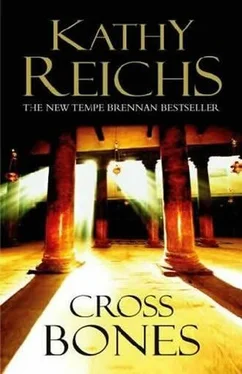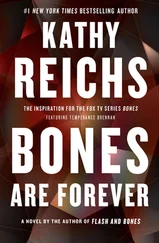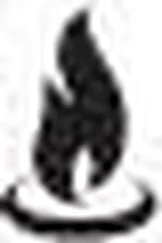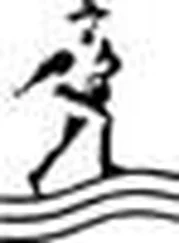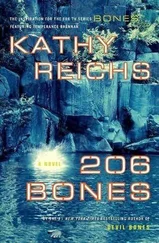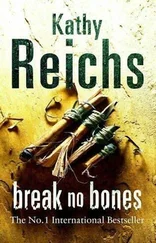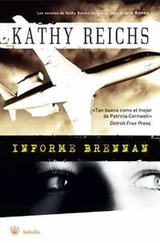Ten minutes later, Ryan dropped me at my condo.
“I’ve got a stakeout this weekend, and I’m already late.” He took my chin in his hands and thumbed my cheeks. “Stay on this Lerner thing. Let me know what Jake’s got.”
“Heart-thumping surveillance,” I said.
“You know what I’d rather surveil,” he said.
“I’m not sure that’s a word.”
Ryan kissed me.
“I’ll owe you,” he said.
“I’ll collect,” I said.
Ryan headed back to Wilfrid Derome. I headed inside.
After greeting Birdie and Charlie, I changed into jeans, and made a cup of Earl Grey. Then I took the handset to the sofa and punched in Jake’s number.
He answered on the first ring.
“You’re still in France?” I asked.
“Yes.”
“You’re going to be late for your own dig.”
“They won’t start without me. I’m the boss.”
“I forgot that.”
“What I’m finding here is much more important.”
Birdie hopped into my lap. I stroked his head. He shot a leg and started licking his toes.
“I’ve spoken with Yossi Lerner.”
“I guessed that from your messages.”
“Lerner still lives in Paris. He’s from Quebec.”
It had to be the Yossi Lerner that Dora remembered.
“Lerner was working at the museum when the Masada skeleton was there as a part-timer while researching his doctoral thesis. Are you ready for this?”
“Cut the drama, Jake.”
“This’ll grab you by the throat.”
It did.
“LET ME BACK UP A MINUTE. THISLERNER’S KIND OF A STRANGEduck. No family. Lives with a ferret. Does pickup archaeology. Israel. Egypt. Jordan. Goes in on grant money, runs a dig, writes a report, moves on. Does a lot of salvage work,” Jake said.
“Save what you can before they bulldoze for the bypass.”
“Exactly.”
“Is Lerner affiliated with any institution?”
“He’s had some temporary appointments, but says he’s never been interested in a permanent position. Finds it too confining.”
“That regular income can be a burden.”
“The guy’s definitely not into money. Lives in a seventeenth-century walk-up built as a barracks for musketeers. Whole apartment’s about the size of a Buick. Access is via a winding stone staircase. Nice view of Notre-Dame, though.”
“So you went to see him?”
“When I phoned, he said he worked nights, invited me over. We spent two hours celebrating the Sun King.”
“Meaning?”
“We did serious damage to a bottle of Martell VSOP Medaillon.”
“How old is this guy?”
“Late fifties, maybe.”
Avram Ferris was fifty-six.
“Jewish?”
“Not as fervently as in his youth.”
“What’s his story?”
“Lerner?”
“No, Jake. Louis the Fourteenth.”
I leaned back. Birdie scootched up onto my chest.
“Lerner was cool initially, but after the fourth snifter he was talking like a convert at Betty Ford. You don’t want to hear about the thing with the pianist, do you?”
“No.”
“Lerner worked at the Musée de l’Homme from seventy-one until seventy-four, while researching his dissertation.”
“Topic?”
“The Dead Sea scrolls.”
“Probably didn’t take the Essenes that long to write them.”
“Lerner takes things slowly. And seriously. Back then he was taking Judaism very seriously.”
“Miss pianist change that?”
“Who said anything about a miss?”
“Get to the Masada bones.”
“In seventy-two Lerner was asked to assist in inventorying a number of museum collections. In doing so he came across a file containing a shipping invoice and the photo of a skeleton.”
“The invoice suggested the bones came from Masada?”
“Yes.”
“Was it dated?”
“November 1963.”
Locus 2001, the cave below the casement wall on Masada ’s southern summit. The jumbled bones. The isolated skeleton. According to Jake’s volunteer-informant, Cave 2001 was discovered and cleared in October of ’63, one month before the museum’s invoice date. I felt a spark of excitement.
“Was it signed?”
“Yes, but Lerner doesn’t remember by whom. He searched the museum’s collections, found the skeleton, made a notation in the file indicating the specimen’s condition and storeroom location, as per protocol, and moved on. But something bothered him. Why had that one set of bones been sent to the museum? Why had the bones remained boxed up and out of sight? Are you purring?”
“It’s the cat.”
“The following year Lerner read a book by an Australian journalist, Donovan Joyce. Joyce’s premise was that Jesus survived the cross.”
“And retired to a nice little place in the islands?”
“He lived to be eighty and died fighting the Romans at Masada.”
“Novel.”
“That’s not all. While at Masada, Jesus produced a scroll containing his last will and testament.”
“And how was Joyce privy to these little gems?”
“In December of sixty-four, Joyce was in Israel researching a book. While there, he says he was approached by a man calling himself Professor Max Grosset, a volunteer excavator on Yigael Yadin’s team. Grosset claimed to have stolen an ancient scroll from Masada, and solicited Joyce’s help in smuggling his booty out of the country. Grosset swore the scroll had fantastic importance, its authorship alone making it priceless. Joyce refused to become involved, but swears he saw and handled Grosset’s scroll.”
“And later wrote a book about it.”
“Joyce had gone to the Holy Land to view Masada, but the Israelis refused his request for a permit to visit the summit. Forced to abandon his original book idea, he regrouped and began investigating the plausibility of Grosset’s scroll. Astounded by his findings, Joyce ended up devoting eight years to the project. While he never again saw Grosset, Joyce claims to have unearthed startling new information about Jesus’ paternity, marital status, crucifixion, and resurrection.”
“Uh-huh.”
“In his book, Joyce mentions the skeletons found in Cave 2001.”
“You’re kidding.”
“According to Joyce, the twenty-five individuals in the cave represented a very special group, separate from the Jewish zealots. He concludes that, following Masada ’s conquest, out of respect for these individuals, General Silva would have ordered his soldiers to leave the cave burials undisturbed.”
“Because the remains were those of Jesus and his followers.”
“That’s the implication.”
“Lerner believed this crackpot theory?”
“The book’s out of print now, but I managed to lay my hands on a copy. I’ve got to admit, if you’re open to such thinking, Joyce’s arguments are persuasive.”
“Jesus.”
“Exactly. Back to Lerner. After reading Joyce’s book, our pious young scholar decided there was a good possibility the bones he’d uncovered at the museum were those of Jesus.”
“Christ and his followers at Judaism’s most sacred site.”
“You’ve got it. The possibility rocked Lerner’s world.”
“Would have rocked Israel, too, not to mention all of Christendom. What did Lerner do?”
“Major angst. What if it was Jesus? What if it wasn’t Jesus, but someone else of importance in the fledgling Christian movement? What if the bones fell into the wrong hands? What if the press got wind of the story? The sanctity of Masada would be disturbed. The Christian world would be enraged over what was sure to be labeled a Jewish hoax. Night after night he agonized.
“After weeks of mental torment, Lerner decided the skeleton had to go. He spent days planning ways to snatch and destroy it. He considered burning the bones. Smashing them with hammers. Weighting them and dropping them into the sea.
Читать дальше
